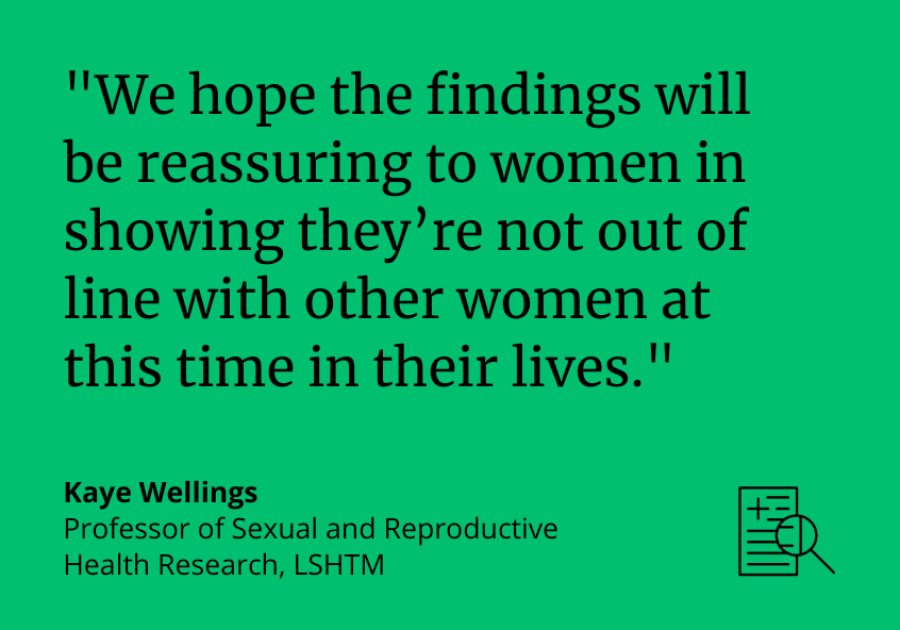Lifestyle bigger influence on women's sex lives than menopause
13 February 2023 London School of Hygiene & Tropical Medicine London School of Hygiene & Tropical Medicine https://lshtm.ac.uk/themes/custom/lshtm/images/lshtm-logo-black.png
The demands and stresses of modern life are a more important factor than the menopause in the decline in the quality and frequency of sexual activity among middle-aged women, new research published in the Journal of Sex Research suggests.
Researchers from the London School of Hygiene & Tropical Medicine (LSHTM), the University of Glasgow and UCL, looked at the factors influencing changes in sexual satisfaction, function, and frequency in women in middle-age and how women themselves explain the changes.
The study combined survey data from the third National Survey of Sexual Attitudes and Lifestyles (Natsal-3) and in-depth interviews with women in middle-age. The survey revealed that out of over 2,000 women aged between 40 and 59, a third had not had sex in the past month but less than half this proportion were dissatisfied with their sex lives.
After taking account of a range of interrelated factors the survey showed that age and menopausal status were less important in determining levels of sexual satisfaction, function, and frequency than relationship and lifestyle factors and health status.
Follow up interviews with a sample of women confirmed the survey findings. Few linked their menopause with a decline in the quality or frequency of sexual activity. What the survey failed to capture, and women’s accounts illustrated vividly, was the sheer weight of pressures on women in midlife. Women interviewed described their hectic schedules, and the challenges of combining family, work, and social lives. They talked about financial and relationship difficulties, worries about family members, the simultaneous demands of children and aging parents, both needing practical help and emotional support and neither contributing greatly to a reduction in workload or stress. The ‘double caring duties’ for children and parents were seen as an issue the previous generation had not experienced. Many women’s lives were so busy that they left little time or energy to enjoy a regular and satisfying sex life.
Kaye Wellings, lead author and Professor of Sexual and Reproductive Health Research at LSHTM, said: “Few studies have taken women’s views into account in trying to understand the range of factors influencing sexual experience in middle age. The decline in frequency needs to be set in the context of social change as well as individual circumstances. Women in middle-age today are often dubbed the ‘sandwich generation’ – they’ve married and had children later than previous generations, they’re working, and they may find themselves supporting both dependent children and elderly parents, while possibly coping with emerging health issues.
“We hope the findings will be reassuring to women in showing they’re not out of line with other women at this time in their lives. That frequency of sex bears little relation with satisfaction with sex lives suggests that intimacy may be a more important factor in determining sexual wellbeing – a message that health care workers might beneficially convey to women.”
Natsal-3 is the largest scientific study of sexual health and lifestyles in Britain. Conducted by LSHTM, UCL and NatCen Social Research, the studies have been carried out every 10 years since 1990, and have involved interviews with more than 45,000 people to date. Natsal-3 was funded by the Medical Research Council and the Wellcome Trust, with additional funding from the UK Research and Innovation and Department of Health and Social Care.
Publication
Wellings et al., “We’re Just Tired”: Influences on Sexual Activity Among Male Partnered Women in Midlife; A Mixed Method Study, The Journal of Sex Research, DOI:10.1080/00224499.2023.2165613
LSHTM's short courses provide opportunities to study specialised topics across a broad range of public and global health fields. From AMR to vaccines, travel medicine to clinical trials, and modelling to malaria, refresh your skills and join one of our short courses today.